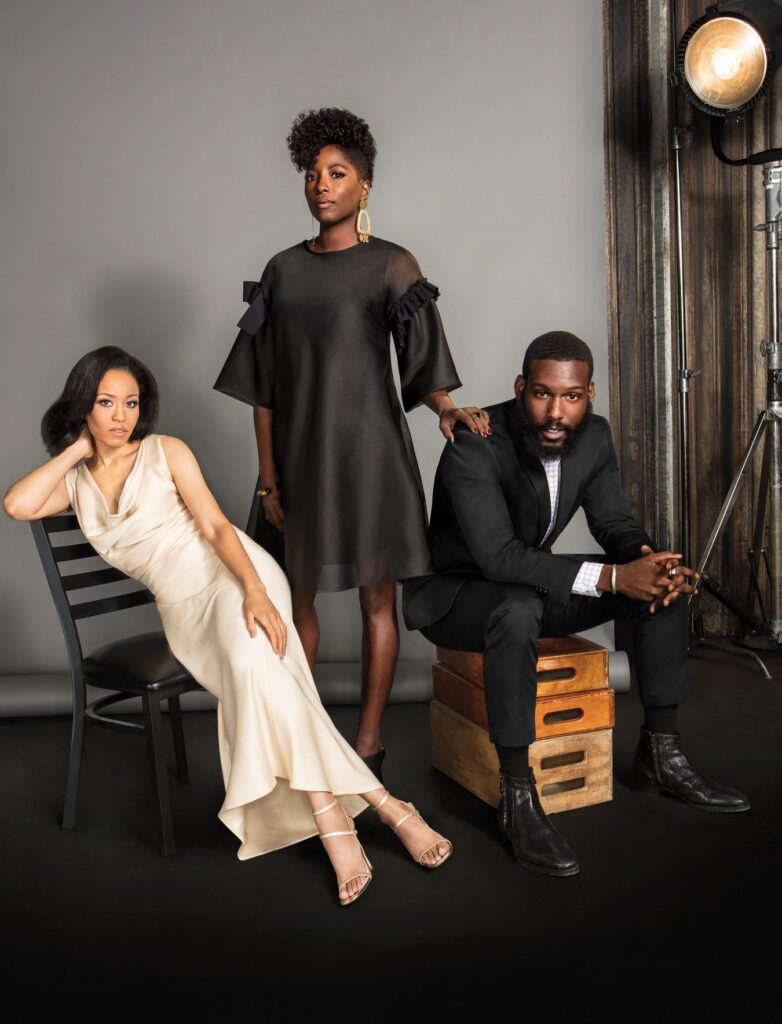


When I tell you that the series finale of “Queen Sugar” was the most meaningful and impactful end of show I’ve ever seen, I’m not exaggerating. It was truly a homegoing service in every sense of African-American spirituality possible. It was unpredictable, poignant, and lovely. The signature direction that makes every hue of brown skin luminous—transcendent, even—was present in every single frame. From Ava Duvernay to Oprah Winfrey and every person responsible for this show, it’s truly been a gift for which I will be eternally grateful for reasons I will feebly attempt to articulate here.
It’s taken me a few days to recover. The care and dignity with which the Bordelon, Desonier (Hollywood), West (Jefferson) and Denton (Prosper) families have been handled and presented is a television watershed moment for television in and of itself. The glorious moments of Black southern culture, from Nova’s mysticism to Vi’s cooking to the recalling of slave rituals surrounding burial and death have been resplendent. Yet more than that, this show has emphasized the endurance and significance of Black family in ways that made it impossible NOT to reflect upon the people in our own families. The ones we struggle with. The ones we adore. The ones we miss with everything in us. This will be Queen Sugar’s lasting legacy.
There were so many moments in the finale that took my breath away, and I want to—need to—say words about a few of them:
Ernest recalling Trudy’s thoughts about love at Prosper’s wife Claire’s funeral.
The conversation with Ernest telling Prosper the blessing it was that Billie got to have her mother’s presence when she was an adult, and the reality for Nova who didn’t hit me right in the solar plexus. Hard. I remembered how long it took me to consider my father’s grief after my mother died. I remember him coming home from the hospital to tell us our mother had just died. It was the second of the two occasions I saw my father cry. It was his tears that told us what had happened before he said anything. We knew. She must be gone. I was 17, and my brother was 14. Here my father was, with two teenagers with a Dad-sized knowledge of us because my mother was the one who took care of our day to day, now in the role of primary parent for all matters big and small. While I was drowning in the anticipatory grief river of all the mother/daughter events and moments that had just been snatched from me, I paid scant attention to the fact that my father lost his life partner before he was even 50 years old. The woman he loved and planned to spend his life with. When Ernest recalled his wife Trudy’s words about love, “Ernest, love goes its own way just like the river. You can’t force it and make it move your way. If you smart, you’ll just flow with it…” I thought about how much grief is like that too. We can’t shield ourselves from it, we can’t force grief away, all we can do…if we’re smart…is flow with it and endure it when it comes.
When Nova got to spend time in her mother’s bedroom after finding out her mother left her the house and the church.
The moment when that sweet gentlemen placed Trudy’s keys in Nova’s trembling hands sent me. For all of us who have endured the death of our mothers to have that moment Nova got—to see her mother’s room, her mother’s things, to see her mother’s handwriting and favorite things again. When Nova said, “All my life I’ve wanted to feel this feeling. She was speaking to me. It was powerful. It doesn’t matter what age you were at the time your mother died, there will forever be a part of you that feels missing, like the ache of a wound that never heals fully. Sometimes it bleeds and needs attention. I hear the words of soldiers who’ve lost limbs who say that even though the appendage is gone, they feel phantom pain, a tingling where the appendage should be. This scene with Nova was a beautiful imagining of what it might be like to get it back. Nova got to feel her mother’s presence again in that space. To smell the familiar smell of her mother. To touch the memories she struggled to remember. “I’ve wanted this, I’ve wanted her all my life. I wanted to feel this feeling and not outside of me, inside. Inside, finally, I feel it. I’m home. In this house, in this community.” Nova articulated the soul’s purpose, as I see it, in that scene. To find your home in you, and in your person. And to find some of the answers to the questions you’ve wanted to ask the one you miss so badly.
Ernest checking in on his family.
I would like you all to know that I surpassed Claire Danes’ ugly cry (as her character, Carrie Mathison in “Homeland”) in the last seven minutes of the show. I bawled, heaved, sobbed, gasped…because, the ancestors. I have now lived longer than my mother did. I have passed that threshold of having lived more years without my mother’s physical presence than with. And I have felt her presence with me on many occasions. This is a key element of African-American spirituality, that our ancestors are ever present with us and to see it displayed on screen with the characters we’ve come to love in seven seasons of “Queen Sugar” made my heart soar. The moment when Ernest was sitting on the porch next to Calvin and a fully pregnant Nova realizes Ernest is present and she turns and smiles at him…letting us know her seeing gift was back…easily, the most beautiful moment of the show for me. And there were so many beautiful moments to choose from.
Of course there were other shockers tossed in to keep my blood pressure up: would they break up Ralph Angel and Darlene in the very last episode, Hollywood winning his seat and Charley losing hers, and of course, the auction where it looked like Ralph Angel lost his last chance to get his father’s farm back, when Hollywood & Vi’s daughter Paulie expressed shock about getting her own room after THREE turns in foster care (even more ugly cry) were all beautifully told.
I’m grateful for so many things this show gave us. It’s difficult to say goodbye to the Bordelons. But the messages of love, and family, and the de-stigmatization of grief and grieving as something we do in secret and in shame is a blessing beyond measure. What a gift. What a legacy. What a charge to move from orthodoxy to orthopraxis in prioritizing family and sitting with the joy and pain of it all.